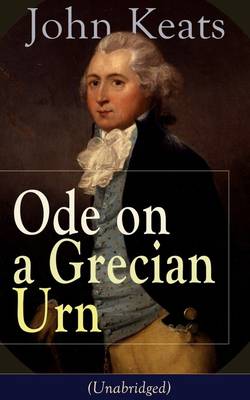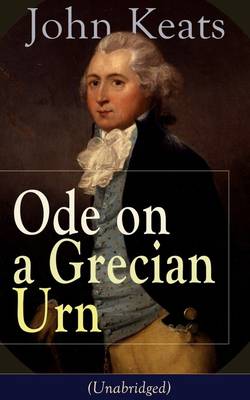
- Afhalen na 1 uur in een winkel met voorraad
- Gratis thuislevering in België vanaf € 30
- Ruim aanbod met 7 miljoen producten
- Afhalen na 1 uur in een winkel met voorraad
- Gratis thuislevering in België vanaf € 30
- Ruim aanbod met 7 miljoen producten
Zoeken
John Keats: Ode on a Grecian Urn (Unabridged)
From One of the Most Beloved English Romantic Poets, Best Known for His Odes, Ode to a Nightingale, Ode to Indolence, Ode to Psyche, Ode to Fanny, the Eve of St. Agnes, Lamia, Hyperion and More
John Keats
Paperback | Engels
€ 30,45
+ 60 punten
Omschrijving
In "Ode on a Grecian Urn," John Keats masterfully intertwines themes of beauty, art, and transience, presenting a profound meditation on the nature of existence and the relationship between life and art. Written in 1819 during the Romantic period, characterized by its emphasis on emotion and nature, Keats employs rich imagery and lyrical language to explore the eternal allure of the urn as a symbol of frozen beauty amidst the inevitable decay of life. The poem serves as a philosophical inquiry into the meaning of truth and the permanence of art in contrast to human mortality, drawing readers into its intricate stanzas that resonate with both emotional depth and intellectual rigor. As a pivotal figure in the Romantic movement, Keats's personal experiences with love, loss, and the ephemeral nature of life significantly influenced his writing. Raised in a working-class London family, his early aspirations of becoming a surgeon were overshadowed by a profound passion for poetry. Keats's own struggles with health and mortality, especially following the death of loved ones, permeated his work, imbuing it with an urgency and sincerity that captivates readers across generations. This unabridged edition of Keats's "Ode on a Grecian Urn" is a compelling invitation for both literary scholars and casual readers alike to engage with the timeless questions it raises. It offers a rich exploration of artistic expression and human experience, making it an essential read for those seeking to understand the complexities of beauty, art, and the human condition.
Specificaties
Betrokkenen
- Auteur(s):
- Uitgeverij:
Inhoud
- Aantal bladzijden:
- 300
- Taal:
- Engels
Eigenschappen
- Productcode (EAN):
- 9788026890874
- Verschijningsdatum:
- 13/12/2018
- Uitvoering:
- Paperback
- Formaat:
- Trade paperback (VS)
- Afmetingen:
- 152 mm x 229 mm
- Gewicht:
- 403 g

Alleen bij Standaard Boekhandel
+ 60 punten op je klantenkaart van Standaard Boekhandel
Beoordelingen
We publiceren alleen reviews die voldoen aan de voorwaarden voor reviews. Bekijk onze voorwaarden voor reviews.








